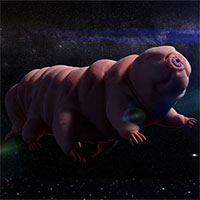The Egyptians used herbs to deodorize their bodies, clean their teeth, and even take a pregnancy test.
The ancient Egyptian methods of applying makeup and cleansing the body were the premise for many later popular soaps, cosmetics, and perfumes.

Egyptians shaved their heads and used wigs to prevent head lice. (Photo: Documentary Tube).
To prevent lice and parasitic bugs, the Egyptians used to shave their heads and wear wigs made of horse hair. The upper class owned many wigs to use on different occasions.
Wigs are also an effective tool in the hot weather typical of this area. Poor people often use headscarves or papyrus instead of wigs. However, many researchers still find some mummies infected with lice.
The elaborate mummification process made the Egyptians curious about the body and tried to learn more about human health. During this period, like priests, doctors also considered illness as an insult to the gods. Therefore, they encourage people to clean their intestines with bleach and laxatives.
The Egyptians took the pill 3 times a month, believing this to help remove disease from the body. To cure diarrhea, people use castor oil. They also use douches and visit specialists for regular anal exams.

An ancient Egyptian skull performing dental braces. (Photo: Museum of Artifact)
To clean their teeth, the ancient Egyptians ground natural ingredients such as salt, flowers and mint into a powder, then used their fingers to brush their teeth. This mixture thickens when mixed with saliva. Later, they created toothbrushes by tying thin strips of plants onto a stick.
The ancient Egyptians did not need to worry about tooth decay due to a diet low in sugar. However, desert sand can wear down people’s teeth. Scientists have discovered evidence of the ancient Egyptians performing dental treatments such as fillings or braces. Some mummies also show signs of teething.
To keep the body’s natural fragrance, the Egyptians ground herbs such as flowers and roots into a thick paste, which was combined with oils to create body creams. The recipes for some homemade “deodorants” include cereal grains, crushed turtle shells, ostrich eggs, and even the industrial turpentine used today, scientists have found.
This deodorant blend is not just for underarms. Some Egyptian women even mixed with wax to apply on their heads. Under the heat of the sun, the wax will melt, which has the effect of diffusing the scent. Many people also use cinnamon or frankincense for added fragrance.
Meanwhile, to reduce bad breath, the ancient Egyptians often chewed parsley after each meal. They also make their own mint lozenges. This process is relatively complicated. Honey is simmered mixed with silver basil, cinnamon, frankincense, cashews and pine nuts. Archaeologists believe that some of the dishes found in ancient Egyptian sites could be these homemade lozenges.
The ancient Egyptians took care of their skin regularly to adapt to the year-round hot climate. After bathing, women and men apply animal fat with a high fat content to keep the skin moist. Honey and castor oil are used to prevent scarring and prevent aging.
Some ancient Egyptian creams used to act as sunscreens, while also helping to prevent insects. While the upper class often buy ice cream at the market, the poorer people make their own ice cream at home with readily available ingredients.

The Egyptians used barley as a pregnancy test. (Photo: Public Domain).
Medical documents of the ancient Egyptian period show that women knew how to take a home pregnancy test by themselves. They planted two grains of barley and wheat in the urine sample. If two grains of rice do not grow, the woman is not pregnant. If the barley sprouts, it’s a boy. If the grain of wheat sprouts, a baby girl will be born.
This form of pregnancy test sounds like a myth, but it is actually quite effective. At the end of the 20th century, researchers tried to verify the reliability of the technique and showed that half of the barley or wheat grown in the urine of pregnant women germinated. Meanwhile, barley in the urine of non-pregnant men or women did not grow.

